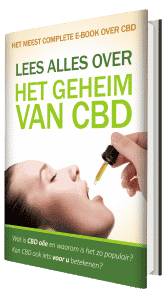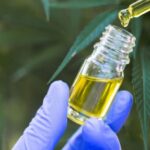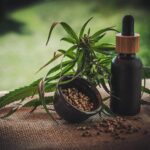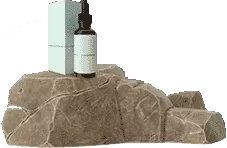The difference between Isolate CBD and Full Spectrum CBD
Not sure where to start your CBD Journey?
Today’s CBD market doesn’t leave anyone empty-handed. You can choose from so many options, including CBD isolate and full-spectrum CBD oil, but deciding which form of CBD is best suited for your goals can get challenging.
One of the most common choices you’ve to make is between CBD isolate vs. full-spectrum CBD, along with broad-spectrum CBD, so you probably want to know which is the best CBD or which types of CBD will provide desired effects. Unfortunately, there is no definite answer to which one you should choose or one way of using CBD, and it depends on individual factors and goals. That’s why this guide to CBD isolate vs. Full-Spectrum CBD oil will help you better understand which one is the right fit for your situation – CBD Isolate or full-spectrum CBD oil.
The Chemistry of CBD Products
The primary differences between isolate and full-spectrum CBD oil and broad-spectrum CBD products are the form of usage, potency, and chemical makeup. Don’t be scared about the last one; we’re referring to the chemistry of cannabinoids here – the natural cannabis-derived elements like CBD.
Cannabinoids are a class of biological compounds that bind to cannabinoid receptors in the endocannabinoid system (ECS) in humans and animals. Scientists at the Hebrew University in Jerusalem discovered ECS in the late 20th century and revealed the mystery behind cannabinoids’ effects on the human body. Cannabinoids fall into three categories:
- Phytocannabinoids – Plant-derived cannabinoids like CBD
- Endocannabinoids – Endogenous cannabinoids humans and animals produce within the ECS
- Synthetic cannabinoids – Lab-made cannabinoids
CBD is a phytocannabinoid that derives from marijuana’s cousin plant– the hemp plant. Humans and animals also produce endogenous cannabinoids (endocannabinoids). It turns out we have cannabinoid receptors in the brain and immune system, so when we (and our pets) consume CBD oil, it supplies our ECS system and plays a role in numerous body processes.
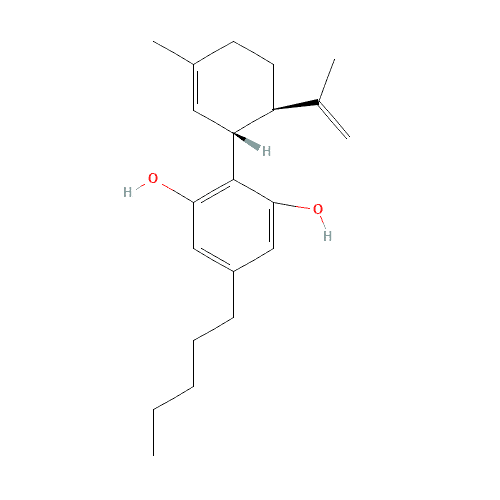
Most Common Phytocannabinoids – CBD and THC
The most common and the most-studied phytocannabinoids today are cannabidiol CBD and THC tetrahydrocannabinol. That’s because they are also most abundant in the cannabis plant, but their amount varies depending on the type of cannabis plant.
Marijuana (the psychoactive cannabis plant) contains high THC and low CBD amounts, while its non-psychoactive cousin, the hemp plant, features high CBD and low THC amounts.
To clear things up, THC is the reason for marijuana’s high. It is an illegal substance in most countries, with some exceptions where medical marijuana is permitted to treat certain conditions or diseases or where recreational use of marijuana is legal.
On the other hand, CBD doesn’t get consumers’ high’, produce a mind-altering experience, or cause psychoactive side effects. It’s federally legal in the U.S. (with up to .3% THC) per the 2018 Farm Bill and legal in most European countries (with up to .2% THC) under European Law.
Full-Spectrum CBD vs. CBD isolate vs. Broad-Spectrum CBD
CBD oil products can lawfully contain up to .3% THC, but not all products do. CBD products with their chemical makeup fall into three categories:
- Full-spectrum CBD
- Broad-spectrum CBD
- CBD Isolates
These CBD product types have the common active ingredient – CBD but differ in other hemp-derived components, which is one of the main differences between isolate and full-spectrum CBD.
As the name suggests, full-spectrum CBD oil contains all active hemp compounds such as cannabinoids, terpenes, flavonoids, and essential oils. It also includes small amounts of psychoactive THC.
Broad-spectrum CBD contains various hemp-derived compounds, like full-spectrum CBD oil but except for THC. THC-free CBD (broad-spectrum CBD) is an excellent choice when searching for a THC-free experience but wishing to benefit from the Entourage Effect.
CBD isolates contain only pure CBD without featuring any other hemp-derived elements, unlike full-spectrum and broad-spectrum CBD.
Regardless of which product type they create, manufacturers first need to extract CBD from the hemp plant using the most common solvent or CO2 extraction process (the latter being the most common extraction method for many brands).
By default, every cannabis extract is full-spectrum, including CBD, meaning they contain many other naturally occurring hemp-derived elements at first. Hemp naturally produces small THC amounts, so it ends up in CBD extract after the extraction process. Depending on which product type they are creating, manufacturers refine the extract accordingly. In broad-spectrum CBD products, they refine the extract to remove THC while leaving all other ingredients like flavonoids and terpenes. In CBD isolate, manufacturers isolate CBD and remove all other hemp compounds to create pure CBD.
The Entourage Effect
CBD isolate products are least hyped compared to other CBD products. One of the reasons for that is probably the Entourage Effect. The famous theory suggests that hemp-derived compounds work synergistically to provide effects; thus, many consumers want to benefit from the combination of cannabinoids and possible boosted benefits of CBD rather than from an isolated compound (although it has its pros too, which we’ll cover below)
The theory dates back to 1998 when Professors Raphael Mechoulam and Shimon Ben-Shabat posited that the endocannabinoid system demonstrated an “entourage effect.” They suggested a variety of “inactive” metabolites and closely related molecules increased the primary endogenous cannabinoids’ activity, which could explain why botanica drugs were more efficacious than their isolated compounds.
CBD isolate
Put simply, CBD isolate is the purest form of CBD. As the name suggests, CBD isolate contains no additives besides CBD molecules. CBD isolate comes either in powder or in a crystalline solid-state, and it contains 99% pure CBD. The Endoca Crystals, for example, are a form of CBD isolate. CBD isolate is easy to measure and use. Some of the most common methods of consuming CBD isolate are:
- Food CBD crystals or CBD powder are easy to add to all kinds of food
- Vaping The CBD crystals or CBD powder can be steeped into e-liquids.
- Dabbing The CBD crystals or CBD powder can be “dabbed.” Dabbing is when you inhale a cloud of the smoke/vapor made by melting the concentrate.
- Adding the CBD crystals to a carrier oil The CBD crystals or CBD powder can be mixed with your carrier oil of choice. Usually, CBD oil is taken sublingually by holding a few drops of it beneath your tongue.
- Blending into skincare products The CBD crystals or CBD powder can even be infused into your favorite skincare products – and as we all know, maintaining a healthy, daily skincare regimen will keep your skin looking lush and beautiful!
CBD Isolate can be further used to create various products, including CBD oils and tinctures, softgels, edibles, and topicals. CBD isolate products don’t contain any other hemp-derived compounds rather than CBD.
Why do People Choose CBD Isolate?
Because of its many uses and applications, CBD isolate might be the perfect answer to your needs, but one of the most common reasons why people opt for CBD isolates is THC. As stated above, full-spectrum CBD products contain all active ingredients, including THC. Although CBD products contain non-psychoactive THC amounts, they still could, in theory, trigger a false positive drug test. Some consumers who like to avoid THC altogether and avoid testing positive for marijuana use on drug tests choose broad-spectrum and isolate.
Full Spectrum CBD
Unlike CBD isolate, and like broad-spectrum CBD, Full Spectrum CBD contains a wide range of cannabinoids, including CBG, CBC, CBN, CBGA. In contrast to broad-spectrum products, it contains trace amounts of THC (less than 0.3%). These compounds interact synergistically to create the famous “entourage effect.”
The THC content in full-spectrum CBD products must be below .2% in Europe and below .3% in the U.S.
In addition to the different cannabinoids mentioned above, cannabis contains other substances such as terpenes, vitamins, chlorophyll, and flavonoids. Each of these compounds has its distinct properties.
Full-spectrum CBD products come in various forms, such as:
- CBD oils and tinctures
- CBD capsules
- CBD edibles and gummies
- CBD topicals
In summary:
While there’s no such thing as the best CBD product or a single way of using CBD, some aspects above can help you determine which CBD product is the best for your needs. The entourage effect suggests that CBD full-spectrum products have a more pronounced effect due to small amounts of THC and other hemp-derived ingredients. CBD Isolate can have its advantages, too, due to its versatility and THC-free experience, especially if you are afraid of testing positive for drug-test after ingesting trace amounts of THC. If you want to experience the effects of CBD, but avoid consuming THC, CBD isolate products are an excellent choice to see how CBD alone affects your body. Full-spectrum CBD is the way to go if you want to reap the benefits of the entourage effect and try various full-spectrum CBD product types available on the market. The alternative to full-spectrum CBD and CBD isolates is the broad-spectrum CBD which includes all naturally occurring compounds found in cannabis plants, including hemp, like terpenes and flavonoids, except for THC.

